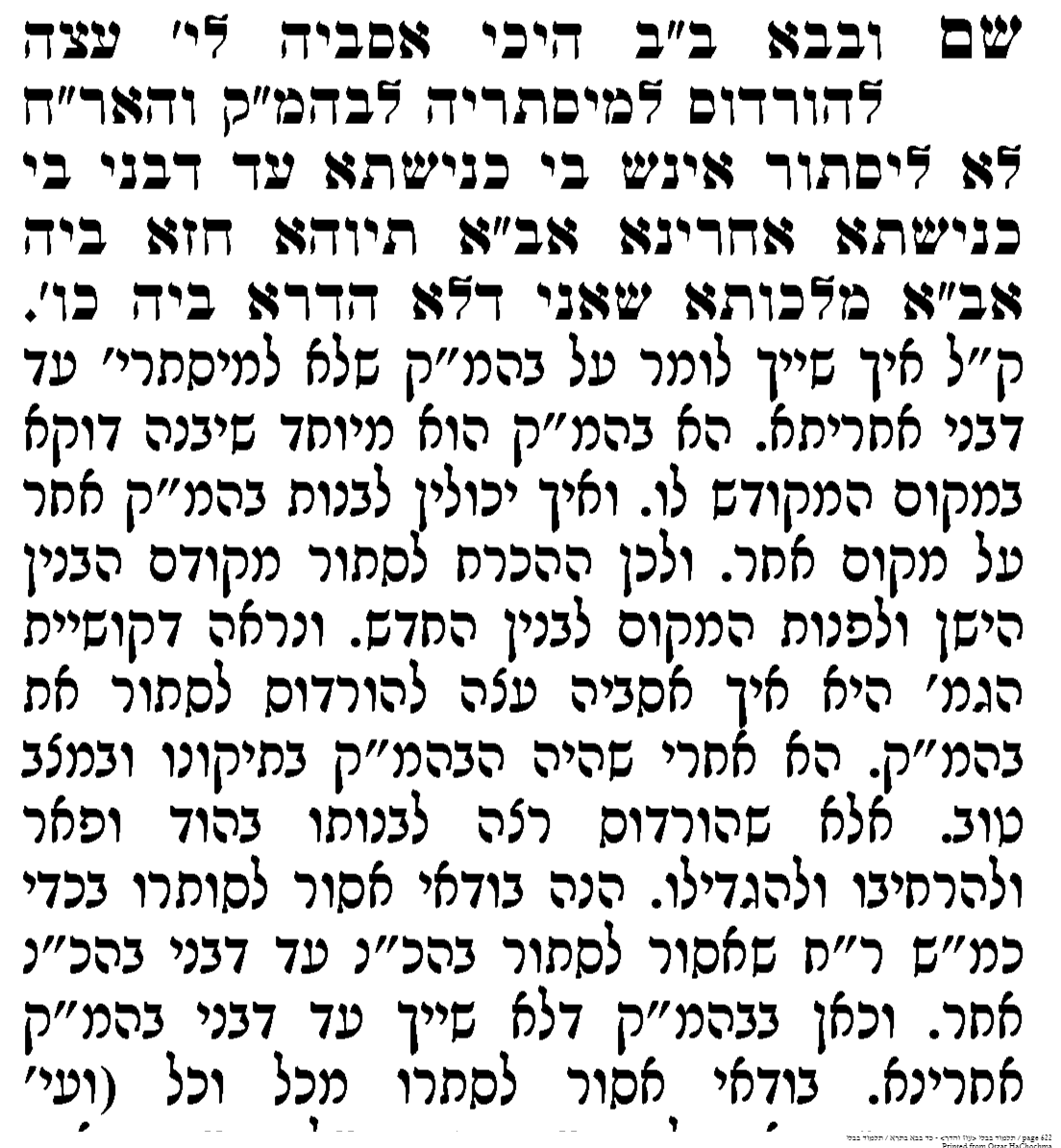אָמַר רַב חִסְדָּא: לֹא לִיסְתּוֹר אִינִישׁ בֵּי כְנִישְׁתָּא, עַד דְּבָנֵי בֵּי כְנִישְׁתָּא אַחֲרִיתִי § Rav Ḥisda says: A person may not demolish a synagogue until he first builds another synagogue
A bit later the Gemara asks
וּבָבָא בֶּן בּוּטָא, הֵיכִי אַסְּבֵיהּ לֵיהּ עֵצָה לְהוֹרְדוֹס לְמִיסְתְּרֵיהּ לְבֵית הַמִּקְדָּשׁ? וְהָאָמַר רַב חִסְדָּא: לָא לִיסְתּוֹר אִינִישׁ בֵּי כְנִישְׁתָּא עַד דְּבָנֵי בֵּי כְנִישְׁתָּא אַחְרִיתָא! אִי בָּעֵית אֵימָא: תִּיוְהָא חֲזָא בֵּיהּ, אִיבָּעֵית אֵימָא: מַלְכוּתָא שָׁאנֵי, דְּלָא הָדְרָא בֵּיהּ; דְּאָמַר שְׁמוּאֵל, אִי אָמַר מַלְכוּתָא: ״עָקַרְנָא טוּרֵי״ – עָקַר טוּרֵי וְלָא הָדַר בֵּיהּ. The Gemara asks: How could Bava ben Buta have advised Herod to raze the Temple and build another in its place, as will be described later? But doesn’t Rav Ḥisda say that a person must not demolish a synagogue unless he first builds another synagogue to take its place? The Gemara answers: If you wish, say that he saw cracks in the old Temple structure. And if you wish, say that actions taken by the government are different, as the government does not go back on its decisions. Therefore, there is no need to be concerned about negligence, as there is in the case of ordinary people. As Shmuel says: If the government says it will uproot mountains, it will uproot mountains and not retract
Why couldn't the gemara answer that Rav Chisda's halacha only applies to a synagogue, as you can build another synagogue elsewhere before demolishing the current one. Given that by the Bais Hamikdash this is impossible, as the new one needs to be build on the same plot the old one is build on, Bava ben Buta was able to advise Hordus to destroy it prior to building the new one?

